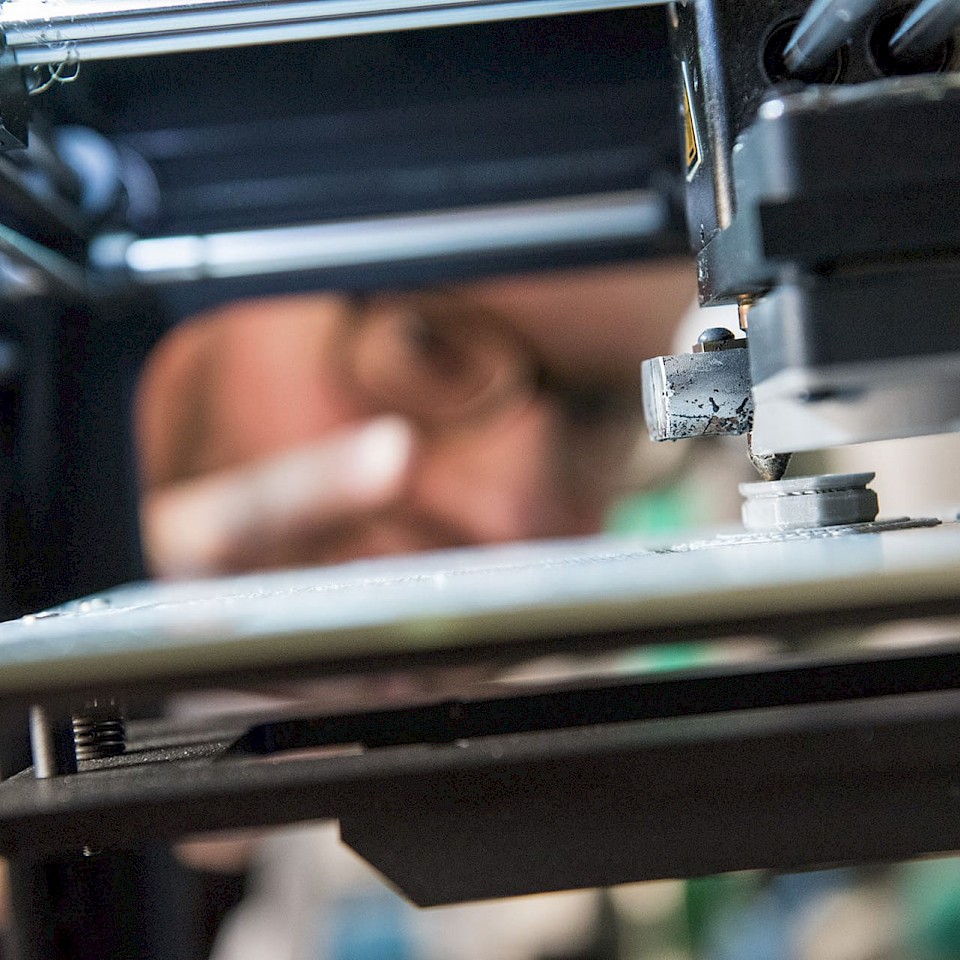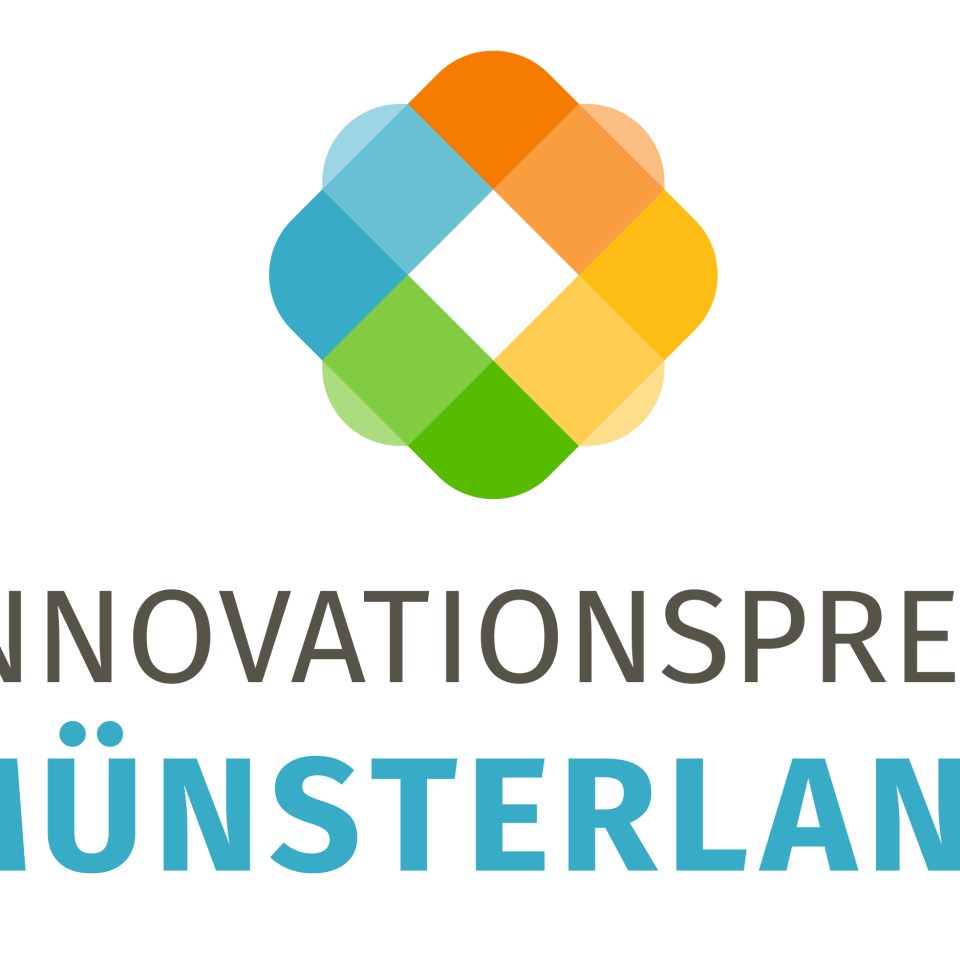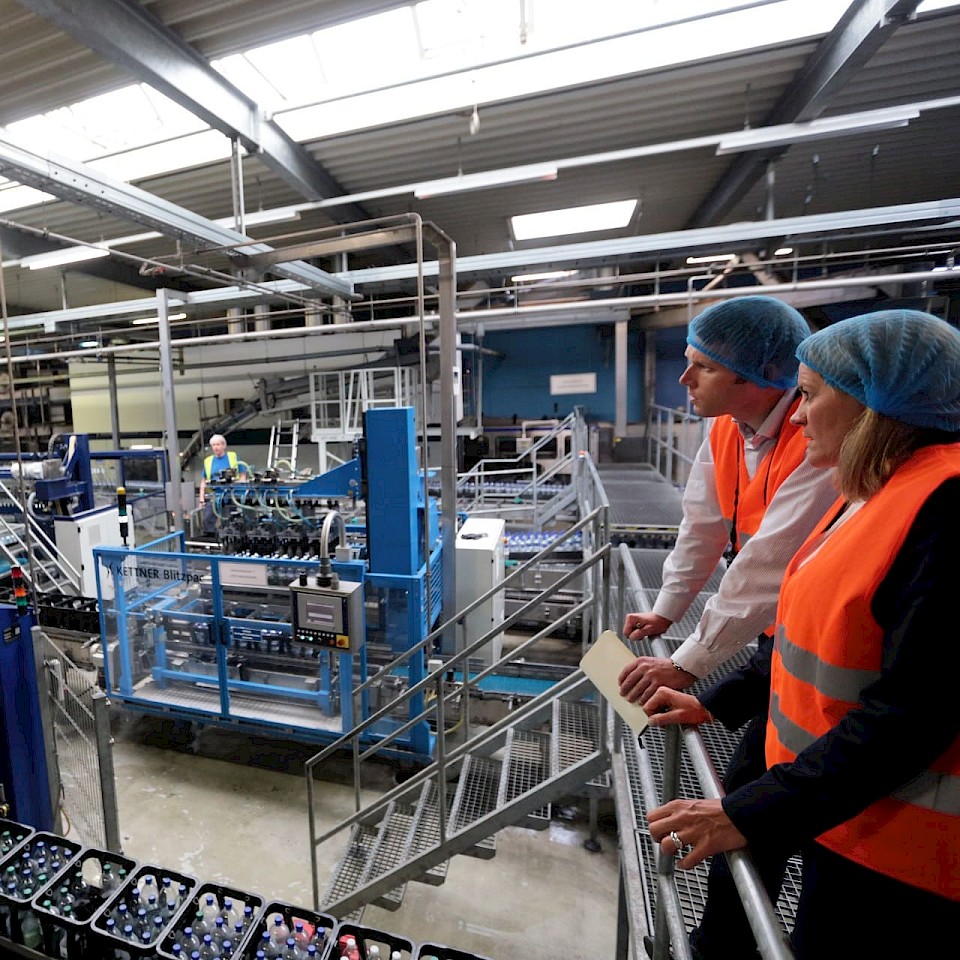
© FH Münster
Getting the best out of slurry
Company and university develop product for separating fermentation residues to market maturity
Cooperation partners BeTeBe and Münster University of Applied Sciences
No growth without nutrients - which is why the use of phosphorus, for example, is essential in agriculture. But how can nutrients such as phosphorus be used according to demand and how can surplus manure be optimally utilised? The Vreden-based company BeTeBe has developed a solution together with Münster University of Applied Sciences.
Find out more about the innovation from Münsterland on this page.
BeTeBe, Vreden
BeTeBe from Vreden develops clean solutions for innovative barn equipment. The company's vision: to enable farmers and their animals to live together in a more comfortable and species-appropriate way through innovations - also in the future. The medium-sized company, which was founded in 1998, has around 50 employees and works on an area of around 3200 square metres.
Münster University of Applied Sciences, Steinfurt Campus
Around 15,000 students study at Münster University of Applied Sciences at the Münster and Steinfurt campuses. The Department of Energy - Buildings - Environment addresses the challenges of our time: renewable energies, clean air, flawless drinking water and efficient heating systems.
Challenge: Making optimal use of phosphorus stocks
Phosphorus is essential for plants to grow well and not show deficiency symptoms. However, there are regions where soils contain sufficient or too much phosphorus, and regions where soils have a phosphorus requirement. Phosphorus is basically needed as a mineral for plant growth in the soil. Therefore, phosphorus is often added to soils as mineral fertiliser, which comes from fossil deposits. But this stock is finite.
Valuable nutrients such as phosphorus can, of course, also be found in agricultural residues such as liquid manure or digestate from biogas plants. But how can surplus liquid manure be utilised and how can phosphorus be recycled in order to optimally utilise the phosphorus stock and only add as many nutrients to the soil as necessary? Together with Münster University of Applied Sciences, the Vreden-based company BeTeBe looked for answers.
Solution approach: A fine separator for separating substrates

© FH Münster
How do you get at the phosphorus in the slurry? In order to develop a solution for this, the Vreden-based mechanical engineering company BeTeBe teamed up with Dr Elmar Brügging's research team from the Department of Energy - Buildings - Environment at Münster University of Applied Sciences. Together they started a research project funded by the Landwirtschaftliche Rentenbank. Within two years, they developed a so-called fine separator: the VakuSep.
The fine separator makes it possible to separate substrates from each other. Pig slurry, for example, can be separated into a liquid phase and a phosphorus-rich solid phase - at low cost and with little effort. Separated into these components, the pig slurry is not only easier to transport. The separator also enables plant operators to influence their own nutrient balance and to achieve a more needs-based fertilisation with their own fertiliser resources.
Success: Market-ready innovation "VaKuSep

© FH Münster
The team from industry and science developed the fine separator to market maturity, which is now freely available under the name "VakuSep". Right from the start, the players made sure that the fine separator could be well integrated into the processes of farms and plants. Furthermore, there are additional modules with which the system can be expanded and the performance increased according to requirements.
The VakuSep is a cost-effective separation system that can be designed and operated specifically for each farm. The separated solid matter also has a high nutrient content. It can be transported better and more cheaply thanks to the significantly lower water content and is a good biogas supplier for biogas plants.
The success was only made possible by the good cooperation between the small medium-sized company and the university. On its own, BeTeBe would not have had the necessary research capacities to develop such a device. Managing Director Franz Zwiers was all the happier about the cooperation with the University of Applied Sciences Münster, - where the short official channels between the BeTeBe location in Vreden and the FH campus in Steinfurt were also a great advantage.
Münsterland Innovation Award 21/22
2022 BeTeBe GmbH was nominated as one of three companies for the Münsterland Innovation Award in the Business category. With this video, their innovation, VaKuSep, was presented at the award ceremony.
As a regional joint initiative, Enabling Networks Münsterland supports companies and universities in the Münsterland region in developing innovations, implementing them and finding the right partners for the project. In order to show how innovative and at the same time cooperative Münsterland already is, the project also went in search of innovative cooperation projects from the region. The results are presented on this page. The Enabling Networks Münsterland project is funded by the European Union and the NRW Ministry of Economics as part of the ERDF call "Regio.NRW".












